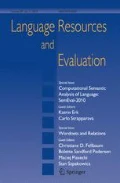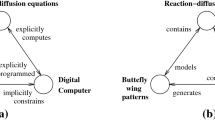Abstract
A new one-semester course is described in which undergraduate students in non-technical majors are shown how traditional philosophical problems of knowledge, cognition, language, and human nature can be fruitfully investigated with computer-related concepts and techniques. A series of simple experiments is used to demonstrate to undergraduates that mental phenomena are real, that they can be studied experimentally, and that they can be modeled insightfully in computational — i.e., information-processing — terms. Each experiment illustrates a basic fact or principle of cognitive science: the formal character of algorithms; creativity and the variants of the Turing test; limitations on human memories; the use of cognitive strategies; heuristic techniques of artificial intelligence; formal grammars and their associated parsers; social, societal, and anthropological dimensions of mind; and degrees of logicality in human reasoning. Students are also taught the essentials of PROLOG, a programming language that is based explicitly on formal logic, incorporating such notions as fact, database, and query, thereby lending itself readily to the description of complex relational networks of a sort not commonly expected to be amenable to computer analysis.
Similar content being viewed by others
References
Bramer, M. A., ed. Computer Game-playing: Theory and Practice. Chichester, England: Ellis Horwood, 1983.
Bruner, J. S., J. Goodnow and G. Austin. A Study of Thinking. New York: John Wiley, 1956.
Chomsky, Noam. Lectures on Government and Binding. Dordrecht: Foris, 1981.
Cushing, Steven. Quantifier Meanings: A Study in the Dimensions of Semantic Competence. Amsterdam: NorthHolland, 1982.
Cushing, Steven. “Abstract Control Structures and the Semantics of Quantifiers.” In Proceedings, First Conference of the European Chapter of the Association for Computational Linguistics. Pisa, Italy, September 1983.
Cushing, Steven. “Dynamic Model Selection in the Interpretation of Discourse.” In Cognitive Constraints on Communication: Representations and Processes. Eds. Lucia Vaina and Jaakko Hintikka. Dordrecht: Reidel, 1984.
Cushing, Steven. “Two Explanatory Principles in Semantics.” In Matters of Intelligence. Ed. Lucia Vaina. Dordrecht: Reidel, 1987.
Cushing, Steven. “Language and Communication-related Problems of Aviation Safety.” Washington, D.C.: U.S. Department of Education, 1989. (ERIC Document Reproduction Service No. ED 296 595, FL 017 504)
Cushing, Steven. “Prototypical Considerations on Modal Meanings.” In Meanings and Prototypes: Studies on Linguistic Categorization. Ed. S. L. Tsohatzidis. London/New York: Routledge, 1990.
Cushing, Steven. “Explaining a Missing Modal Meaning: Ideology and Paradigm as Pragmatic Parameter.” In Levels of Linguistic Adaptation: Selected Papers from the 1987 International Pragmatics Conference. Ed. Jef Verschueren. Philadelphia/Amsterdam: Benjamins.
Cushing, Steven. “Some Tri-valent Quantifiers from Natural Language: Explanatory and Methodological Principles of Semantic Inquiry.” To appear in Communication and Cognition, in press.
Flood, Merrill M. “Sequential Search Strategies with Mastermind Variants — Part l.” Journal of Recreational Mathematics, 20 (1988), 105–26.
Gardner, Howard. The Mind's New Science: A History of the Cognitive Revolution. New York: Basic Books, 1985.
Hentenryck, Pascal Van. “A Constraint Approach to Mastermind in Logic Programming.” SIGART Newsletter, 103 (January 1988), 31–35.
Johnson-Laird, Philip N. Mental Models: Towards a Cognitive Science of Language. Inference, and Consciousness. Cambridge, MA: Harvard University Press, 1983.
Langendoen, D. Terence. Essentials of English Grammar. New York: Holt, Rinehart and Winston, 1970.
Levy, David. Computer Gamesmanship. New York: Simon & Schuster, 1983.
Martin, James. System Design from Provably Correct Constructs. Englewood Cliffs, NJ: Prentice-Hall, 1985.
Miller, George A. “The Magical Number Seven, Plus or Minus Two: Some Limits on Our Capacity for Processing Information. Psychological Review, 63 (1956), 81–97.
Schmucker, Kurt J. Fuzzy Sets, Natural Language Computations, and Risk Analysis. Rockville, MD: Computer Science Press, 1984.
Tolman, E. C. Purposive Behavior in Animals and Men. New York: Century, 1932.
Tsohatzidis, S. L. Meanings and Prototypes: Studies on Linguistic Categorization. London/New York: Routledge, 1990.
Turing, Alan M. “Computing Machinery and Intelligence.” In E. Feigenbaum and J. Feldman (Eds.). Computers and Thought. New York: McGraw Hill, 1963.
Wagner, Roy. Symbols that Stand for Themselves. Chicago/London: University of Chicago Press, 1986.
Weizenbaum, Joseph. Computer Power and Human Reason. San Francisco: W. H. Freeman, 1976.
Winograd, Terry,. Language as a Cognitive Process. Volume 1: Syntax. Reading, MA: Addison-Wesley, 1983.
Yue, Kwok-bun. “Some Heuristics for Playing Mastermind.” SIGART Newsletter, 98 (October 1986), 21–22.
Author information
Authors and Affiliations
Additional information
Steven Cushing (Ph.D., UCLA) is associate professor of computer science at Boston University and author of the book, Quantifier Meanings: A Study in the Dimensions of Semantic Competence, and of numerous articles. He has been a NASA Summer Faculty Fellow at both Ames and Langley Research Centers and served on a delegation sponsored by the USSR Academy of Sciences to help evaluate Soviet uses of computers in education.
Rights and permissions
About this article
Cite this article
Cushing, S. “Minds and machines” for humanities majors: A liberal arts course in computers and cognition. Comput Hum 25, 275–280 (1991). https://doi.org/10.1007/BF00120963
Issue Date:
DOI: https://doi.org/10.1007/BF00120963




